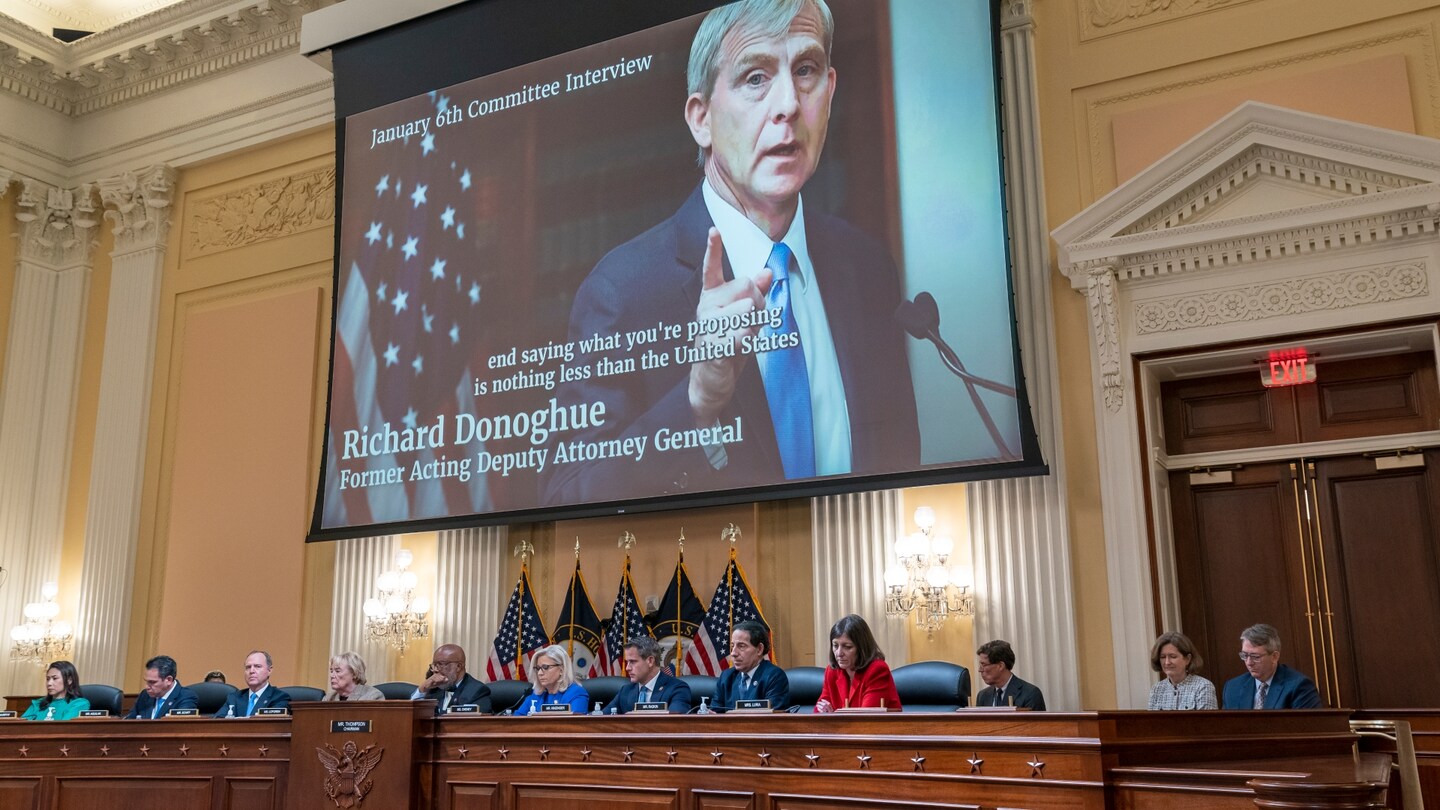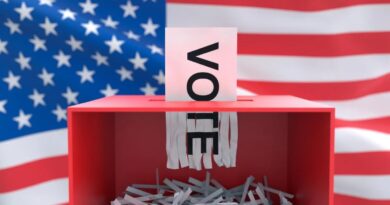What’s defensible in the case against Donald Trump?

Could they defend the president telling then acting deputy attorney general Richard Donoghue in a telephone call, “Just say the election was corrupt and leave the rest to me and the Republican congressmen”?
Could they defend the president for asking why the government was not seizing voting machines that his campaign lawyers had targeted with a spurious conspiracy theory involving Venezuela and its onetime leader Hugo Chávez?
Could they defend his plan to replace then acting attorney general Jeffrey Rosen with an assistant attorney general named Jeffrey Clark, who other DOJ officials said was not competent to run the department and yet who was willingly compliant to do the bidding of the president to prevent the Congress from ratifying Joe Biden’s victory?
Could they defend Clark’s drafting of a letter to be sent to several swing states saying that the department had “significant concerns that may have impacted the outcome of the election” when in fact there was no evidence to back that up?
Could they defend the discussion of appointing lawyer Sidney Powell — who with Rudy Giuliani, the president’s lawyer, was promoting various conspiracy theories for which there was no evidence — as a special counsel to conduct an investigation for which there was no other purpose than to delay and disrupt?
Could they defend the fact that a lawyer named Kenneth Klukowski, who had joined the Justice Department after the election and was working with Clark, was also working with Trump’s outside attorney John Eastman, an architect of the so-called fake electors strategy?
Could they defend Trump’s repeated attempts to bully, badger and otherwise try to force state or local officials to overturn the results of recounted and certified elections in their jurisdictions?
Could they defend him asking Georgia Secretary of State Brad Raffensperger to “find 11,780 votes” and thus deny Biden by a single vote his legitimate victory in that state?
Could they defend efforts to persuade Russell “Rusty” Bowers, the Republican speaker of the Arizona House, to organize a formal inquiry into the election without providing evidence of fraud?
Could they defend what Giuliani said to Bowers, according to the speaker’s testimony, which was, “We’ve got lots of theories. We just don’t have the evidence”?
There was a moment in Thursday’s hearing when the deviousness of the president’s and his loyalists’ efforts morphed into delusion, showing the lengths to which Trump and then White House Chief of Staff Mark Meadows sought to use government agencies to advance their scheme. It involved one of the wildest conspiracies of the entire post-election period, that an Italian defense contractor somehow uploaded software to a satellite that then switched votes from Trump to Biden.
According to testimony, Rep. Scott Perry (R-Pa.) contacted Meadows asking why the administration couldn’t work with the Italian government on this. Meadows sent a link of a video outlining the conspiracy to Rosen, who sent it along to Donoghue, who looked at the video and determined that it was “pure insanity.”
Meadows nonetheless urged Rosen to meet with one of the perpetrators of the conspiracy, a man named Brad Johnson. Rosen said he wouldn’t do so, that the person could go to any FBI field office if he had any real evidence to offer.
Meadows seemed to accept that answer but later called back to say that Johnson was working with Giuliani and that Giuliani was offended and insulted that he was being told Johnson should go to an FBI field office.
That wasn’t the end of it. Donoghue later received a call from a Defense Department official asking about “this Italy thing.” Donoghue told the official the whole thing was murky, the video “was absurd” and that Justice was having nothing more to do with it.
But the committee learned that then acting defense secretary Christopher Miller, whom Trump had appointed after firing the previous secretary, Mark T. Esper, had placed a call to a defense attache in Italy seeking information that would confirm Giuliani’s and Trump’s claims.
Perhaps Trump’s defenders would try to defend all that as simply an effort to follow up every lead. But the very preposterousness of the Italian satellite conspiracy theory raises the question of how the president, his chief of staff and Giuliani could fall for something so outlandish, other than because of a desire to do anything they could to disrupt the orderly counting of the electoral votes and prevent an orderly transition — even after having been told that Trump had lost the election.
Not everything that was discussed in the two public hearings this past week was new. In fact, a considerable amount of the information had been reported previously. The audio of the Jan. 3, 2021, telephone call from Trump to Raffensperger, for example, had been made public at the time, thanks to the reporting of my colleague Amy Gardner. Stories of the exchanges between Trump and DOJ officials had emerged earlier as well.
But the power of seeing the players involved — Trump-appointed officials at the Justice Department and Republican elected officials from Georgia and Arizona (plus local election worker Shaye Moss of Fulton County, Ga., and her mother, Ruby Freeman, who were targeted by Trump and Giuliani) lent credibility to those previous reports.
Many scandals since Watergate have had the word “gate” attached to them. In this case the comparisons are legitimate. Like Nixon, Trump sought to undermine the Constitution in the hope of clinging to power.
The testimony on Thursday showed that Trump was prepared to turn the Justice Department into an agent of his own campaign. He also faced a repeat of the famous “Saturday Night Massacre” during Watergate.
The president was told by Donoghue in an Oval Office meeting that, if he replaced Rosen with Clark, he could expect a mass exodus from the top ranks of DOJ and the possibility of hundreds of resignations. Faced with that, he decided not to go ahead and appoint Clark as acting attorney general.
The Jan. 6 committee is assembling the best case it can, based on extensive evidence collected over many months. What exculpatory material may exist in their files is known only to the members of the committee and their staff. The hearings are not a court of law. There’s no cross-examination of the witnesses.
But virtually all the witnesses who have appeared in person or on video have been members of Trump’s administration or his campaign, advisers to former vice president Mike Pence or Republicans from the swing states — in other words, officials who likely all voted for Trump and, as Bowers said after his testimony, would do so again if Trump is the GOP nominee in 2024.
Trump may be complaining in private about the absence of defenders on the committee, but the evidence as presented so far is both damaging and difficult to defend. Trump’s only response has been to repeat the lies about a stolen election. Other Republicans prefer to look away rather than try to defend the president’s conduct.

